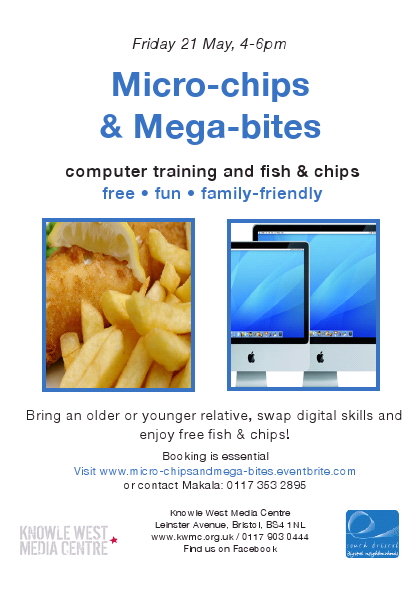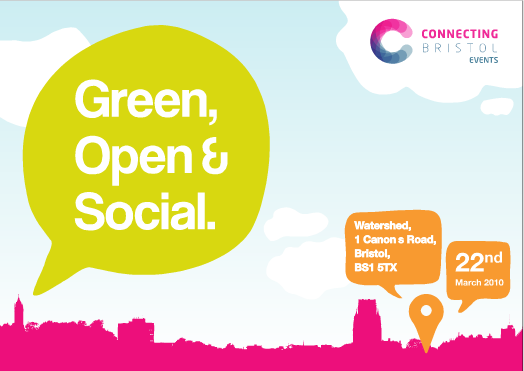My inbox today contained the an appeal from 38degrees, who have been helping fight the Government’s Digital Economy Bill. The Bill would present a major threat to the survival of open public wifi services (such as provided by Bristol Wireless and many other small outfits and operators). In addition, it introduces draconian copyright protection/infringement measures in the interests of big media companies, whilst denying assertion of copyright protection to smaller fry, such as freelance photographers.
Moreover, there has also been a lot of debate locally on the Bill, including a session at January’s Brrism meeting, plus online discussion.
The text of the email is reproduced below.
Dear Steve,
Next Tuesday the Digital Economy Bill could be rushed through Parliament unless we take action now. Party leaders are planning to give in to the music industry and force the bill into law without allowing a proper debate, without allowing opposition to be heard.
We need to turn the pressure up on MPs to rebel by placing adverts in key newspapers and on key websites so everywhere MPs go they’ll see how many people oppose the bill. On the day of the vote they’ll see our opposition over their cornflakes, on their way in to work and over tea in Parliament.
Because of printing deadlines we’ve only got 4 days to raise the £10,000 we need to pay for these adverts. Will you chip in now?
Click here to donate now: http://secure.38degrees.org.uk/stop-the-bill
We have one last chance to stop the bill. Party leaders can’t rubber stamp it into law without the support of their MPs. Thanks to over 18,000 emails we’ve sent over the last week MPs support for the bill is starting to crumble as they realise how many people oppose fast-tracking the bill through parliament
With the election just weeks away, politicians want our votes and may think twice about ignoring us. There’s still time to stop this bill being forced through – but we have to act quickly. Let’s show Parliament how many people are against the bill.
There’s plenty to oppose in the Digital Economy Bill. It gives the government the ability to disconnect millions. Schools, libraries and businesses could see their connection cut if their pupils, readers or customers infringe any copyright. But the biggest problem is that party leaders plan to rush it into law without allowing a proper democratic debate.
Please donate now to show Parliament how many of us oppose the bill. Just click here to get started:
http://secure.38degrees.org.uk/stop-the-bill
Thanks for getting involved,
Johnny, David, Hannah, Nina and the 38 Degrees team
PS: Here’s what one MP said in response to the campaign so far:
“The subject is complex and the bill is proving to be hugely contentious; because of this it is crucial, more than ever, that Parliament fulfils its democratic duty and gives the bill proper debate and scrutiny. Although it is imperative that jobs in the creative industries are protected, and it is right that artists be paid fairly for work they produce, the bill, as it stands, seems to be heavily weighted in favour of rich and powerful copyright holding companies. Despite the front bench consensus there is significant back bench concern on all sides, and I and my colleagues will do all we can to ensure the bill is not rushed through the House without proper debate and scrutiny.”
As mentioned, above I took the time last week to write to Leader of the House, Harriet Harman, who has yet to respond. However, I also copied my email to my local MP, Kerry McCarthy, whose response is below:
Dear Mr Woods,
Thank you for contacting me about the Digital Economy Bill and its progress through Parliament before the election. You will not be surprised to learn that I have received several emails on this topic in recent days and I appreciate why you are unhappy at reports that the Bill could be passed into law without being properly debated in the Commons.
As you will be aware, the Bill was introduced in the House of Lords, and has gone through all stages there, being significantly amended in the process. There is obviously not time for it to be properly scrutinised by the House of Commons – i.e. a Second Reading debate, detailed scrutiny in Committee, Report Stage and Third Reading – before an election has to be called. (See here for details of the progress made through Parliament so far http://services.parliament.uk/bills/2009-10/digitaleconomy.html)
Indeed, we are fast running out of time for it to even have a Second Reading in the Commons, though this is something which is a matter for the Leader of the House, Harriet Harman, and she may have more news at the weekly Business Statement on Thursday.
My understanding of what will happen to the Bill is as follows. If the Bill does not get listed for a Second Reading in the Commons, then it falls, i.e. it does not become law and would have to be reintroduced after the General Election.
If it does make the floor of the House of Commons, e.g. if there is a Second Reading debate in the Commons chamber, then the non-controversial elements of the Bill may be dealt with during what is known as the ‘wash up’ period. (This is the period after the Prime Minister goes to the Palace to signal a General Election but before Parliament is dissolved). This would have to be agreed by the three main political parties. If there is not a consensus, there will be no attempt made to push any measures through the Commons by a parliamentary vote.
I appreciate that there is real concern about some of the clauses in the Bill, and in particular the proposal to disconnect internet connections as a last resort in cases of illegal file-sharing. There is, however, much in the Bill which is uncontroversial, which needs to be enacted as soon as possible, and for which there is broad support. These measures, and only these measures, may become law before the General Election.
Of course is the General Election does not take place until June, there may be time for full scrutiny of the Bill by the Commons, but I suspect that will not happen!
I hope this provides you with some reassurance,
Regards,
Kerry McCarthy MP.
If you have a Twitter account, you can follow what’s being said about the bill using the hasthtag #debill.
 From Friday 14th to Sunday 16th May 2010, Wikimedia UK will host Wikimedia delegates from around the world who will be meeting in Bristol.
From Friday 14th to Sunday 16th May 2010, Wikimedia UK will host Wikimedia delegates from around the world who will be meeting in Bristol.


 “FSFE is very proud to have a ‘knight’ among its team,” says FSFE President Karsten Gerloff. “Georg’s tremendous dedication to freedom in technology has been a driving force for Free Software in Europe and around the world. He has put Free Software on the political agenda and has created the structures to harness the community’s energy towards our common goals. His hard work over more than a decade has brought enormous progress for Free Software.”
“FSFE is very proud to have a ‘knight’ among its team,” says FSFE President Karsten Gerloff. “Georg’s tremendous dedication to freedom in technology has been a driving force for Free Software in Europe and around the world. He has put Free Software on the political agenda and has created the structures to harness the community’s energy towards our common goals. His hard work over more than a decade has brought enormous progress for Free Software.” A brief email dropped into my inbox earlier this week pointing me in the direction of the
A brief email dropped into my inbox earlier this week pointing me in the direction of the  News arrives in your correspondent’s inbox and via the
News arrives in your correspondent’s inbox and via the 


 Voscur, Bristol’s umbrella organisation for the voluntary and community sectors, recently announced it will be organising green ICT surgeries. They’re to be held between 2.00 p.m. and 4.00 p.m. on both Thursday 25 February 2010 and Monday 1 March 2010 on at The CREATE Centre, Smeaton Road, Bristol, BS1 6XN (
Voscur, Bristol’s umbrella organisation for the voluntary and community sectors, recently announced it will be organising green ICT surgeries. They’re to be held between 2.00 p.m. and 4.00 p.m. on both Thursday 25 February 2010 and Monday 1 March 2010 on at The CREATE Centre, Smeaton Road, Bristol, BS1 6XN ( It’s Valentine’s Day and the
It’s Valentine’s Day and the  Earlier this week a newsletter popped into your correspondent’s inbox from our good friends and fellow free software advocates at
Earlier this week a newsletter popped into your correspondent’s inbox from our good friends and fellow free software advocates at  Hot on the heels of the New Year comes encouraging news from Munich, where the
Hot on the heels of the New Year comes encouraging news from Munich, where the  Jim & Stefan, both freshly supplied with a hot drink are busy working away on machines for
Jim & Stefan, both freshly supplied with a hot drink are busy working away on machines for